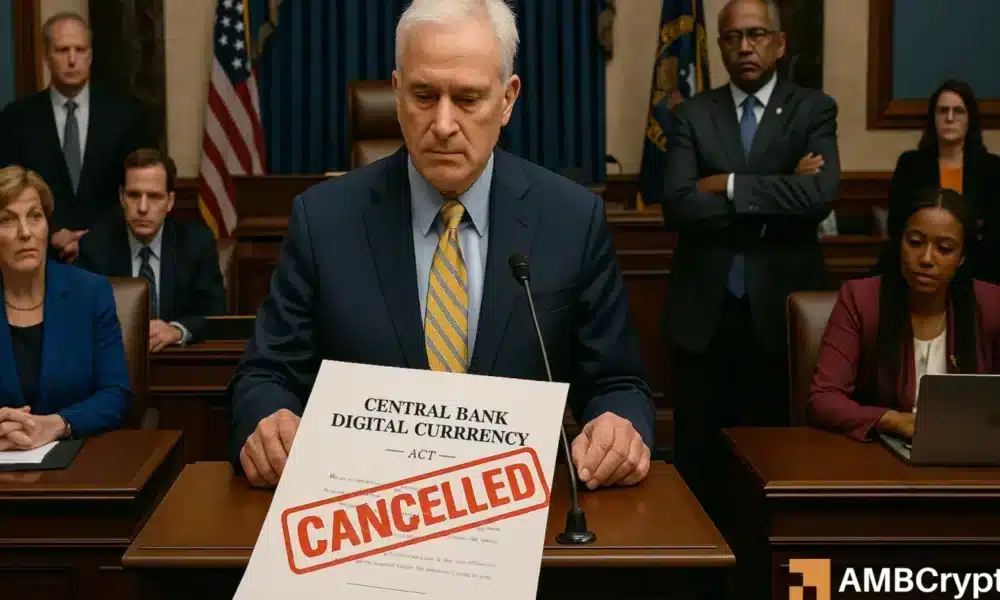
U.S. CBDC Ban: Navigating Political Clashes and Market Impacts
The U.S. government is currently at the center of heated debates over the future of a central bank digital currency (CBDC). Amid growing concerns about privacy and governmental overreach, House Republicans are pushing to block the Federal Reserve from issuing a digital dollar. This significant movement has not only ignited tensions between GOP leaders and Democrats but also raised questions about the global stance on digital currencies.
The Push for a CBDC Ban
Led by Rep. Tom Emmer (R-Minn.), the U.S. House of Representatives is advancing efforts to merge two key bills: the Anti-CBDC Surveillance State Act and the bipartisan CLARITY Act. While the CBDC ban has garnered Republican support, the CLARITY Act—designed to establish oversight for crypto tokens—has seen cooperation across party lines with 78 Democratic votes.
House Republicans emphasize that banning a CBDC is critical in protecting privacy and preventing governmental surveillance. However, Democratic opposition, coupled with debates over the integration of related bills, complicates the Senate’s approval prospects. Early efforts to attach the ban to a defense bill failed due to the lack of bipartisan agreement, prompting the GOP to incorporate it into a broader crypto market bill instead.
Strategic Challenges and Political Maneuvering
The Financial Services and Agriculture Committees faced resistance earlier this year when attempting to merge the CBDC bill with bipartisan legislation. Republican hardliners, however, insisted that any crypto-related laws must include provisions to block the Federal Reserve from issuing a digital dollar. These persistent tensions have delayed progress while exposing differing priorities between both parties.
A statement from House Financial Services Chair French Hill’s spokesperson remarked, “Passing both the CLARITY Act and Anti-CBDC bill were key priorities for members of the House. By combining both measures, the House continues to advance these priorities.” Nonetheless, experts emphasize that bipartisan cooperation remains crucial for these measures to pass in the Senate.
The Global Context and Digital Currency Adoption
On a global scale, various nations are accelerating plans to adopt central bank digital currencies, with BRICS countries leading the charge. By reducing reliance on the U.S. dollar and increasing financial autonomy, these nations aim to minimize costs and bypass traditional geopolitical hurdles. This shift challenges America’s longstanding dominance in the global financial system and highlights the urgency of domestic crypto policy discussions.
In response to these international developments, experts underscore the importance of the U.S. remaining a central player in the digital currency conversation to maintain its financial leadership. As discussions surrounding crypto frameworks continue, the decisions made on a national level will inevitably shape the United States’ role in the evolving financial landscape.
Enhance Your Crypto Strategy
As crypto adoption grows globally, navigating this space becomes increasingly critical for investors. To stay ahead in the rapidly evolving digital asset world, consider tools like the Ledger Nano X, an advanced cryptocurrency hardware wallet that keeps your assets secure.
The ongoing CBDC debates and related legislative developments underscore the need for individuals and businesses to stay informed about changes affecting both crypto markets and regulatory structures. How the U.S. approaches digital currency legislation may influence global crypto adoption for years to come.





